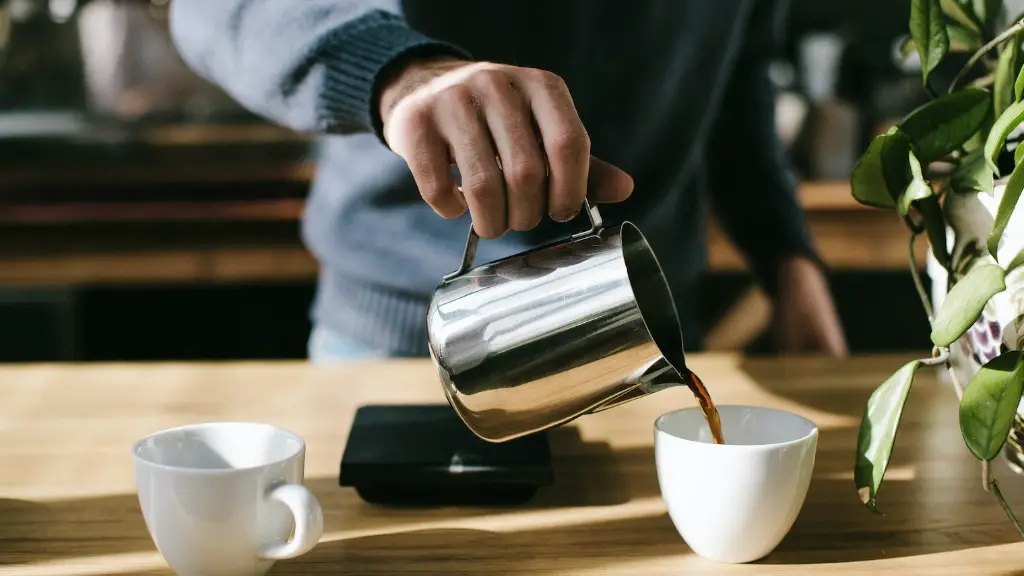When it comes to headaches, just about everyone has experienced them. Whether it’s a tension migraine, or an acute migraine, they can be very uncomfortable and even debilitating at times. Many of us reach for the painkillers when we feel one coming on, but did you know there is another solution? Coffee. Recent studies have suggested that drinking coffee may help to reduce headaches, although the scientific evidence for this is still inconclusive. We’ll take a look at what the experts are saying and what we know so far.
Caffeine is thought to be the active ingredient in coffee that may help to reduce the severity of headaches. There are two theories about how this works. First of all, some experts believe that caffeine helps to constrict the blood vessels that are causing the pain. Secondly, it’s thought to inhibit the production of certain neurotransmitters that are involved in the sensation of pain. This is why many over the counter painkillers also contain caffeine.
Studies have been conducted that show moderate amounts of caffeine can help reduce the severity of headaches. People who consume up to 200 milligrams of caffeine a day have seen a significant reduction in headache severity and duration. This level of caffeine intake is equivalent to 2 to 4 cups of coffee per day. However, it’s important to note that the studies have been inconclusive and the scientific evidence is still unclear.
Some experts have suggested that tolerance to caffeine can be an issue, as the body can become accustomed to high levels of intake over time. As a result, it’s important to limit the amount of coffee you’re drinking and vary the type of drink you choose. For example, switching from espresso to filter coffee can help to reduce the level of caffeine.
It’s also important to note that for some people, coffee can be the causative factor for headaches in the first place. This can be the case for those who are particularly sensitive to the effects of caffeine, as well as those who don’t drink enough water throughout the day. This is why it’s always best to consult with a doctor or health professional before taking any action.
Drinking coffee as a way to reduce or prevent headaches is still a controversial topic, with no clear consensus. While many people have seen positive results, it’s important to note that there is still a lack of scientific evidence to support these claims. It’s best to consult with a doctor or health professional before making any drastic changes to your lifestyle.
Age Factor
Studies have shown that different age groups may respond differently to caffeine when it comes to pain relief. Research has suggested younger individuals may be more sensitive to the effects of caffeine, with some experiencing increased levels of pain. This could be because their bodies haven’t yet developed an adequate tolerance to caffeine.
Also, the type of headache you are dealing with could also determine what kind of relief you should be looking for. Those who are suffering from chronic headaches may be more likely to benefit from other pharmaceutical treatments.
It’s important to note that coffee can act as a stimulant, and might also cause insomnia in some people. So, it’s best to avoid drinking coffee late in the day, especially if you’re prone to headaches.
Also, coffee can be dehydrating – remember to drink plenty of water throughout the day. This will help to keep headaches at bay.
Coffee Alternatives
Those who don’t like the taste of coffee, or who are trying to reduce their caffeine intake, could consider other alternatives. Green tea is one such option, as it also contains some levels of caffeine, as well as other beneficial plant compounds. Research has shown that green tea can help to reduce pain, possibly because of its anti-inflammatory properties.
Ginger has also been studied for its ability to reduce pain. While the research is still in its early stages, some people have found it to be effective in reducing the severity of headaches. Ginger can be consumed in various forms, either as a tea or in capsules.
Finally, many people find that aromatherapy can help to reduce the severity of headaches. Certain scents, such as lavender and peppermint, can reduce muscle tension, as well as help to ease stress and anxiety. Aromatherapy can be done with essential oils or through diffusers.
Side Effects
Despite its potential for pain relief, drinking coffee can also lead to some side effects, especially if you are drinking too much. Side effects of excessive coffee consumption include headaches, nausea, restlessness, insomnia, and irritability. It’s important to be aware of these side effects and to limit your caffeine consumption to no more than 400 mg per day.
Coffee should also be limited or avoided by those who are pregnant, or are at risk of developing high blood pressure or heart disease. If you are taking medications, it’s important to check with your doctor or pharmacist to make sure that drinking coffee is safe.
Final Thoughts
The jury is still out when it comes to using caffeine to reduce headaches, as many studies have shown inconclusive results. However, drinking coffee can have some positive effects, as long as it is done in moderation. Be aware of the potential side effects, and if you are feeling any discomfort when drinking coffee, it’s best to stop and consult with your doctor.
It’s also important to remember that coffee should not be used as a replacement for other treatments. If you are experiencing frequent headaches, it is best to consult with your doctor to make sure that there is not an underlying medical condition.




